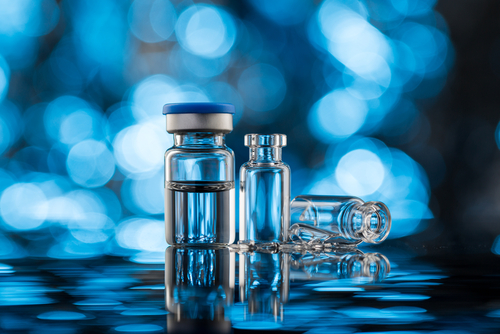The Phase 2 trial evaluating Sellas Life Sciences‘ cancer vaccine NeuVax as a treatment for women with early stage HER2-positive ductal carcinoma in situ (DCIS), a non-invasive breast cancer, has completed patient enrollment.
The vaccine is made of Sellas’ nelipepimut-S, the active ingredient that educates the immune system to recognize and mount an attack against the HER2 protein, and the growth factor granulocyte-macrophage colony-stimulating factor (GM-CSF), which increases the amount of tumor killing cells and the vaccine’s activity.
The 13 women taking part in the VADIS study (NCT02636582) have been assigned to either NeuVax — meaning a combination of nelipepimut-S and GM-CSF — or to GM-CSF alone, a treatment approved as Leukine (sargramostin).
Treatment is being given prior to breast cancer surgery. Those in the vaccine arm will receive a nelipepimut-S injection two weeks before GM-CSF. Patients in the Leukine arm will receive two GM-CSF injections before surgery, given two weeks apart, and three additional injections after surgery, given one month apart. All will be followed for up to three months.
Its main goal is to determine the number of cytotoxic T-cells targeting the HER2 protein. Secondary goals include safety, toxicity, the presence of DCIS at the time of surgery, differences in HER production, tumor proliferation, the amount of immune cells infiltrating the tumor, and additional immune measures.
“We are pleased to announce completion of enrollment in the Phase 2 VADIS trial, an important milestone for our NPS (Nelipepimut-S) clinical program. The premise of the VADIS study is quite innovative, as it will provide valuable data and give us the opportunity to gauge in a controlled, randomized setting whether NPS can effectively induce an antitumor immune response in DCIS (Ductal Carcinoma In situ) patients,” Angelos M. Stergiou, president and chief executive officer of SELLAS, said in a press release.
Participants were also screened for HLA type — which defines the subtype of active T-cells — to ensure they were positive for HLA-A2 or HLA-A3 classes, for whom NeuVax was particularly designed.
Early results from VADIS are expected by year’s end.
“We believe NPS could serve as an earlier stage treatment for women with breast cancer and hope to gain through this study further insights on the immunobiological mechanism underlying the clinical activity of NPS,” Stergiou said.
“VADIS is poised to inform us on the design of future treatment strategies for DCIS, which remains an unmet medical need, including combinations of NPS with standard therapies in a broad population,” added Elizabeth A. Mittendorf, the trial’s principal investigator.
A Phase 2 trial (NCT02297698) is also testing NeuVax, in combination with Genentech’s Herceptin (trastuzumab), as a maintenance treatment for women with HER2-positive breast cancer at high risk of recurrence.
This combination has also shown promise in women with triple-negative breast cancer, for whom it extended the time without disease recurrence in a Phase 2b trial (NCT01570036).

